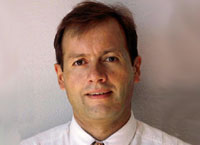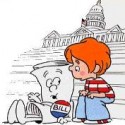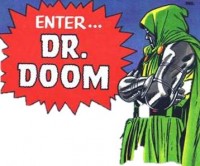This morning on WNYC in New York City, I debated Josh Silver of the pro-Internet-regulation group Free Press. It was a healthy exchange of views, except for a few barbs and innuendos thrown by Silver, who is obviously frustrated by his group’s lack of progress in seeking a “government takeover of the Internet.” (He wanted to debate in simple, ideological terms like that, so I indulge here.)
What was most interesting to me was how unsophisticated Silver is with respect to government and regulation. Take a look at his plea:
What we’re asking for—what we need are regulatory agencies that are not captured by industry and that actually act on behalf of the American public. And that’s what they were created to do. The FCC—1934, with the advent of radio—was created to make sure that the public interest was protected. And what we’ve seen is industry capture of regulatory agencies has made those agencies fail again and again and again.
And the only thing that’s gonna work is if the Obama administration and the FCC stand up and say, “No more business as usual. We are going to protect net neutrality. We’re going to protect competition, and make sure there’s choices for consumers. And we’re going to end the status quo in Washington that has really broken our entire political system.”
The Obama administration and the FCC did stand up and say “no more business as usual,” but that’s what politicians do to seduce voters. Then, once in power, they go about business as usual. Lucy always yanks away the football, Charlie Brown.
Silver is not alone in having these sweet, sad “good government” sentiments. Many of my interlocutors, with whom I often share outcome goals, believe strongly in achieving those goals by remaking governmental and political systems so that they finally “work.” They believe so strongly in this approach that they seem to think it’s just around the corner—if only we prohibit some speech here, some petitioning of the government there. Y’know, “take the money out of politics.”
Hopefully this fantasy will never come true, because it requires reversing fundamental rights such as free speech in all its instantiations—a handover of power from people to the government and elites that run it.
In the absence of that perfected, all-powerful government—thank heavens—we must organize the society’s resources using the best machine we’ve got for discovering consumers’ interests and delivering on them: an unhampered marketplace, now energized and enhanced by the Internet.






 The Technology Liberation Front is the tech policy blog dedicated to keeping politicians' hands off the 'net and everything else related to technology.
The Technology Liberation Front is the tech policy blog dedicated to keeping politicians' hands off the 'net and everything else related to technology.